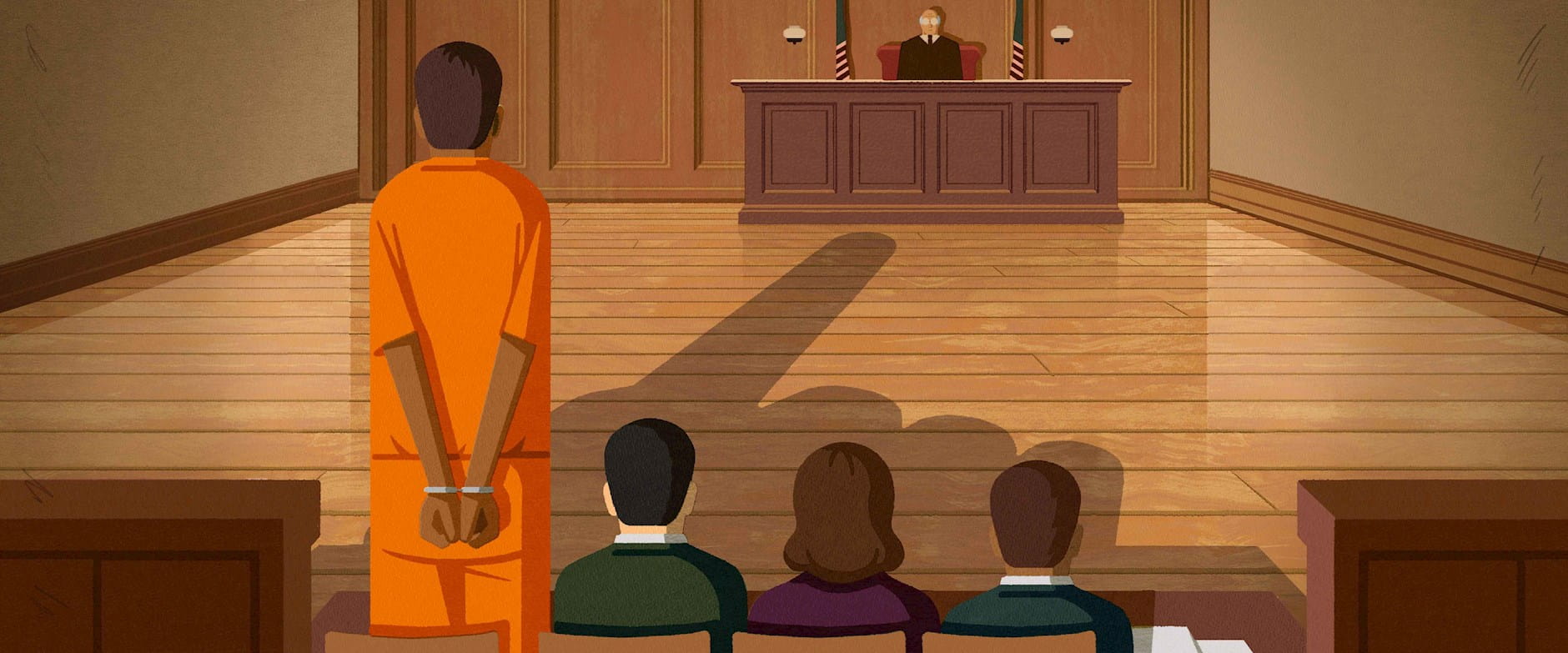The United States has sky-high incarceration rates and a justice system that often hands down different sentences to different people convicted of similar crimes. Giving criminal defendants who plead guilty a choice of which judge hands down their sentence might help tackle the problem, according to research from Chicago Booth’s Barış Ata, Clemson’s Rhys Hester, Stanford’s Lawrence M. Wein, and Booth postdoctoral researcher Yuwei Zhou.
“Public defenders are overworked and make plea bargains, and the judge matters,” Ata says. “What kind of system can we design to give defendants more choice?”
The researchers analyzed data from South Carolina, where Hester and Georgia State University’s Eric L. Sevigny previously conducted research about the sentences that follow felony convictions. On average, Black defendants with similar criminal histories and charges faced longer sentences than equivalent white defendants, that research finds.
But giving defendants more power during sentencing could help even the playing field, finds the more recent study, which analyzes sentencing data from one year (July 1, 2000, through June 30, 2001) in South Carolina. The state has an unusual process of judge rotation: in 2000, 50 judges split their time between the circuit court in their home county and the other circuit courts across the state’s 46 counties. Each county hosted an average of 13 judges that year.
The researchers observe that some defendants engage in “judge shopping,” which in this case means strategically waiting to agree to a plea deal until a judge known to be more lenient on certain crimes is assigned to the case. A judge who goes easier on drug-related charges, for example, might sentence a defendant to probation instead of jail. (In other contexts, the same language is sometimes used to mean filing a lawsuit with the same allegations in multiple jurisdictions in hopes of finding a friendly judge.)
The effects of waiting for a lenient judge
Ata, Hester, Wein, and Zhou built a mathematical model to predict what would happen if all defendants sought to take advantage of the state’s changing cast of jurists. The model factors in how often judges travel between different courtrooms, their capacity to take on new cases, and the length of time a defendant can wait strategically for a lenient judge before agreeing to a plea bargain, which the researchers call the “shopping window.” It assumes that all judges rotate, as was the case when the data were collected—but also that all defendants shop for judges rather than just some.
The model predicts that judge shopping could lead to more consistent sentence lengths for the same types of crimes, reducing variability by as much as 10 percent, which could potentially decrease the number of people in jail. This would especially benefit defendants who can’t afford the cost of going to trial, the researchers write, noting that 98 percent of all criminal cases in the US end in a plea bargain. It would reduce variability even in states that have stricter guidelines in place meant to limit sentencing disparities, they add. “By some accounts, the identity of the sentencing judge may matter more to a case outcome than the facts of the case or the background of the defendant,” the researchers write.
The findings could have implications for sentence lengths in US cities, where many defendants already have the opportunity to strategically identify favorable judges because there are more of them, the researchers write.
Ata, Hester, Wein, and Zhou caution that their model is a simplified version of the complex judicial process. Still, they argue, the findings suggest that expanding defendants’ choice of judges could help lead to greater consistency and less incarceration.
- Barış Ata, Rhys Hester, Lawrence M. Wein, and Yuwei Zhou, “Analyzing the Effects of Judicial Rotation on Criminal Sentencing: An Operations Perspective,” Working paper, February 2023.
- Rhys Hester and Eric L. Sevigny, “Court Communities in Local Context: A Multilevel Analysis of Felony Sentencing in South Carolina,” Journal of Crime and Justice, October 2014.
Your Privacy
We want to demonstrate our commitment to your privacy. Please review Chicago Booth's privacy notice, which provides information explaining how and why we collect particular information when you visit our website.
